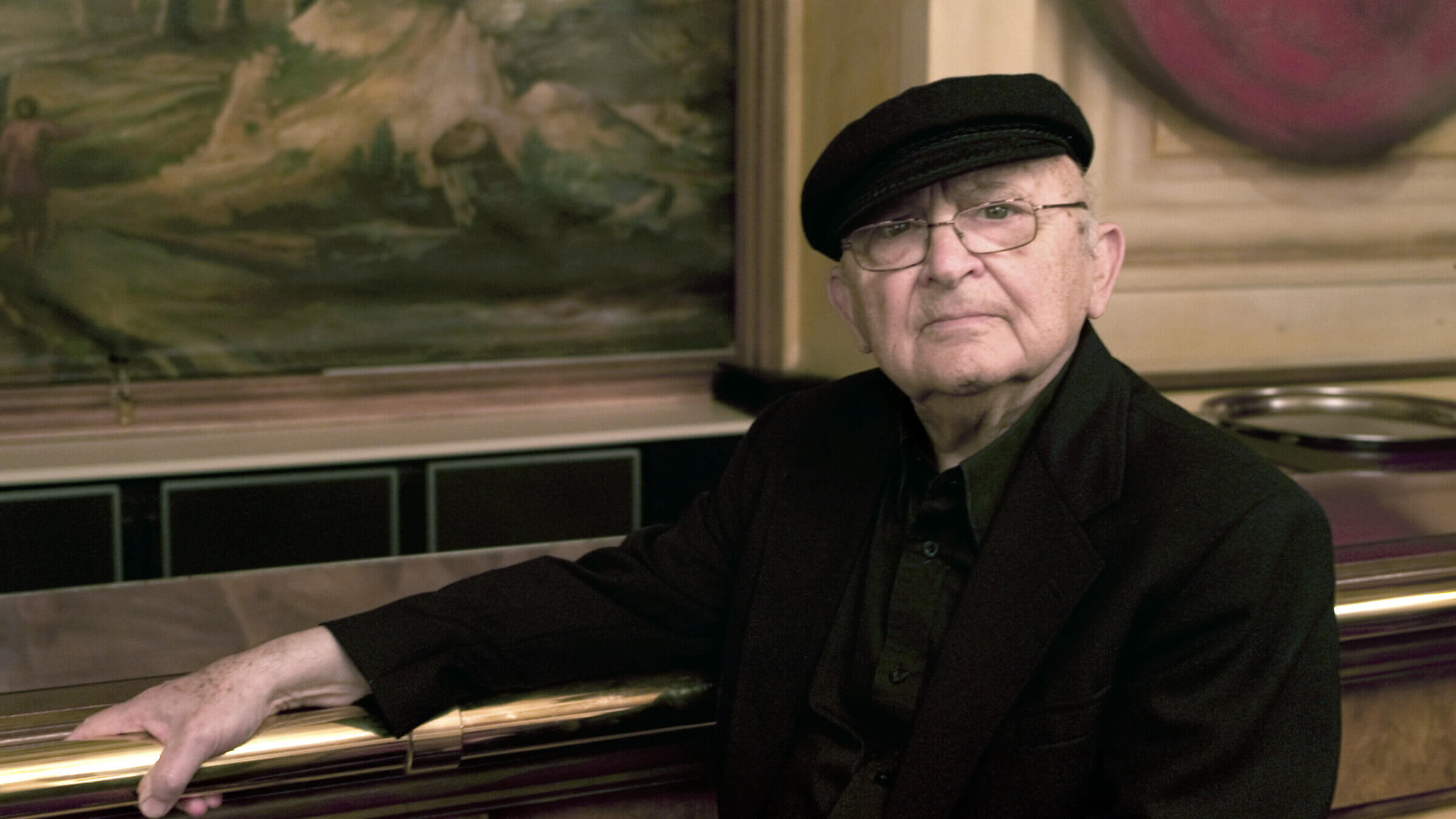How a master of understatement conjured up the horrors of the Shoah
Aharon Appelfeld’s ‘Poland, A Green Land’ is a sort of fable set a generation after the fall of the Third Reich

Aharon Appelfeld, seen her in 2010, died in 2018. Photo by Getty Images
Poland, A Green Land
By Aharon Appelfeld
Translated from Hebrew by Stuart Schoffman
Schocken, 240 pp, $27
“Tell all the truth,” Emily Dickinson advised poets, “but tell it slant.” Faced with the monstrous enormity of the plot to murder all the Jews of Europe, Aharon Appelfeld, who escaped from the slave labor camp where he was sent at age 8 and spent three years hiding, used indirections to find directions out. Badenheim 1939 and To the Land of the Cattails are both set on the eve of genocide and derive their power from an implicit awareness that the world they depict is doomed.
The Age of Wonders and The Iron Tracks are both set after World War II, though the ghosts of 6 million Jews haunt everything. More than any other writer in Hebrew, his adopted language, Appelfeld, a master of understatement who died in 2018, conjures up the obscene horror of the Shoah, and he does it without graphic scenes of crematoria or even using the word “Nazi.”
Poland, A Green Land is set a generation after the fall of the Third Reich. Yaakov Fein, owner of a successful shop for women’s clothing in Tel Aviv, feels alienated from his wife Rivka and their two daughters, all of whom he finds “thin and cold and frighteningly practical.” Despite Rivka’s opposition, he is determined to leave his family and business behind and travel alone to Szydowce, the Galician village of his ancestors.
Born in Israel, Yaakov had grown up rebelling against his immigrant parents, even to the extent of refusing to be bar mitzvah. His is the sabra’s embarrassment over Diaspora Jewish victimhood, and he paid little attention to his mother’s stories about surviving the roundup of Jews by hiding in a farmer’s cowshed. Now that his parents are dead, Yaakov is seized by an impulse to learn more about them.
Like Bruno, the protagonist of Appelfeld’s novel The Age of Wonders, who returns 30 years later to an Austrian town now devoid of all Jews, Yaakov embarks on a journey to discover that, as William Faulkner put it, “The past is never dead. It’s not even past.”
Arriving in Szydowce, Yaakov serendipitously finds lodging on a farm owned by Magda, who, it turns out, worked in the household of Yaakov’s grandparents. Magda learned and cherished the Jewish customs that Yaakov casually rejected. In a village largely populated by unreconstructed, brutish antisemites, Magda stands out as a Judeophile. Naturally, she falls in love with the only Jew to show up in Szydowce in three decades. Yaakov also falls deeply in love with her.
In the spare prose of Stuart Schollman’s translation from Appelfeld’s laconic Hebrew, the first English rendition of this 2005 novel, Yaacov’s journey takes on the authority of a fable. The narrative is frequently interrupted by Yaakov’s troubled dreams, casting the entire proceedings in the aura of hallucination. His visit is “a continuum of miracles,” filled with unlikely encounters and characters, most of whom “seemed like creatures from the netherworld.”
They include a long-lost cousin who was baptized and refuses to acknowledge his kinship with Yaakov; the farmer who hid and later evicted Yaakov’s parents when they could not meet his demands for payment; and the village mayor, who accuses Jews of congenital greed but tries to extort $10,000 from Yaakov in exchange for tombstones from the Jewish cemetery that have been repurposed as pavement.
Yaakov is repeatedly told that Jews deserve to suffer because of their stubborn refusal to accept Jesus. The verdant landscape in which the traveler exults is the site where Jewish men were led to the forest and shot, where women and children were herded into the synagogue and set on fire.
Yaakov’s solitary journey to Szydowce constitutes teshuva, in the sense of both a return to family origins and repentance for neglecting and rejecting those origins. “For my entire adult life,” he confesses to Magda, “I was busy with many things, most of them unimportant.” His return to Europe forces him to acknowledge the importance of continuity, humility and compassion.
The lesson seems a bit too pat for the moral complexities of Appelfeld’s other novels. A tavernkeeper underscores the horror that Yaakov is now willing to face: “This village is cursed. I don’t know why. Here people die of nothing or of madness.” But the seductive fantasy of a romantic idyll with a beautiful gentile who understands and cherishes Jews sweetens Appelfeld’s stark vision of human depravity.
















